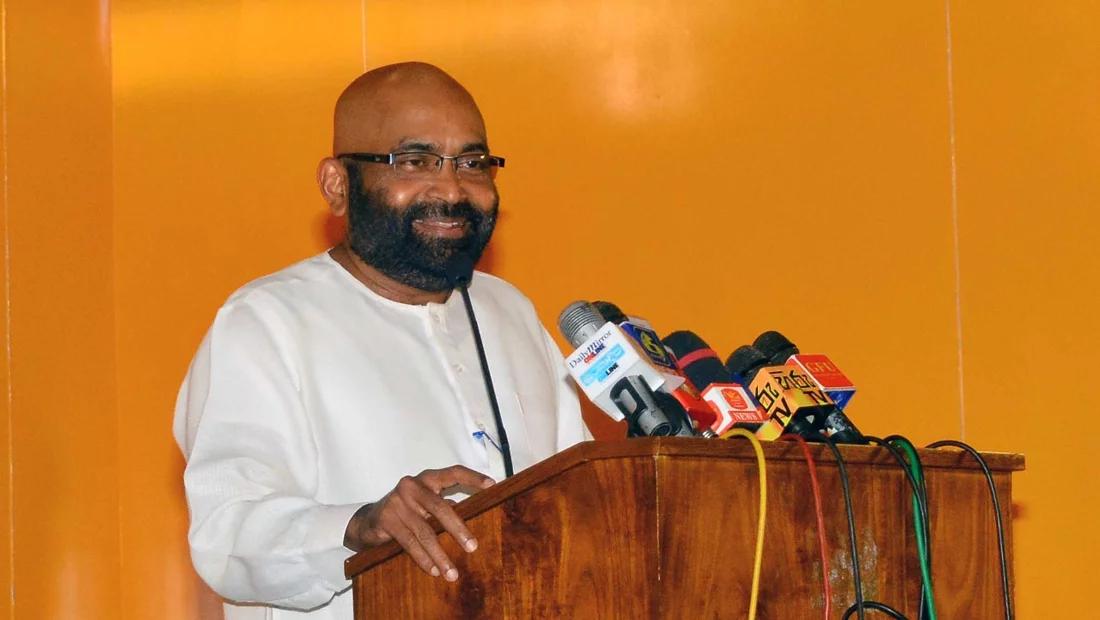General
Sri Lanka to give Rs 1.1 mn interest-free loan to students who don’t enter state university


ECONOMYNEXT – Sri Lanka’s trade unions and professional associations agitating against an IMF-backed tax hike are to hold talks with the secretary to the president ahead of a discussion with President Ranil Wickremesinghe.
Media spokesman of the Federation of University Teachers Association (FUTA) Charudaththa Illangasinghe told reporters Friday March 17 morning that the meeting with President’s Secretary Saman Ekanayake was to be held that noon.
The discussion had been scheduled for March 21 but had been brought forward, which Illangasinghe said was a step in the right direction.
However, talks so far have been futile, he noted, adding that FUTA and other unions would like to end the talks on a positive note with a fair outcome that is acceptable to them.
Illangasinghe further said that if their March salary was taxed, all trade unions and professional unions – some of whom had by Thursday morning called off a strike – would continue their trade union action.
FUTA’s strike is still ongoing, and Illangasinghe said it will continue until a favourable decision has been made.
In the days leading up to Friday’s meeting, trade unions in Sri Lanka threatened to cripple the economy if the government did not reverse International Monetary Fund (IMF)-backed reforms, with one main opposition SJB-affiliated union leader promising a total shutdown of power & energy, medical, banking and other vital sectors starting midnight March 14.
The threat did not come to pass in its full form, with government spokesmen painting it a failure. A majority of the unions including the Government Medical Officers Association (GMOA) had called off the strike by Wednesday morning.
Related:
Sri Lanka unions threaten to cripple economy against IMF-backed reforms
However, severe trade union action by medical doctors had by then already brought the state health sector to a near-standstill. Doctors were on strike in several provinces against the income tax hike, greatly inconveniencing patients, before the strike was eventually called off.
High-income earning public servants in higher education, medical, banking, ports and other sectors have for weeks been threatening to up the ante in ongoing trade union action against Sri Lanka’s IMF-backed reforms, including a progressive income tax hike that sees the cash-strapped government collect from anyone earning over 100,000 rupees a month.
Minister of Ports, Shipping and Aviation Nimal Siripala de Silva told parliament on Thursday that 17 ships en route to the Colombo Port had turned back as a result of a recent anti-tax protest organised by port unions. He also claimed that one protesting port worker earns over 170,000 rupees a month.
Sri Lanka’s new tax regime has both its defenders and detractors. Critics who are opposed to progressive taxation said it serves as a disincentive to industry and capital which can be invested in business. They argue that a flat rate of taxation is implemented where everyone is taxed at the same rate.
Others, however, contend that the new taxes only affect some 10-12 percent of the population and, given the country’s economic situation, is necessary, if not vital.
Critics of the protesting workers argue that most of the workers earn high salaries that most ordinary people can only dream of, and though there may be some cases where breadwinners could be taxed more equitably, overall, Sri Lanka’s tax rates remain low and are not unfair. (Colombo/Mar17/2023)








